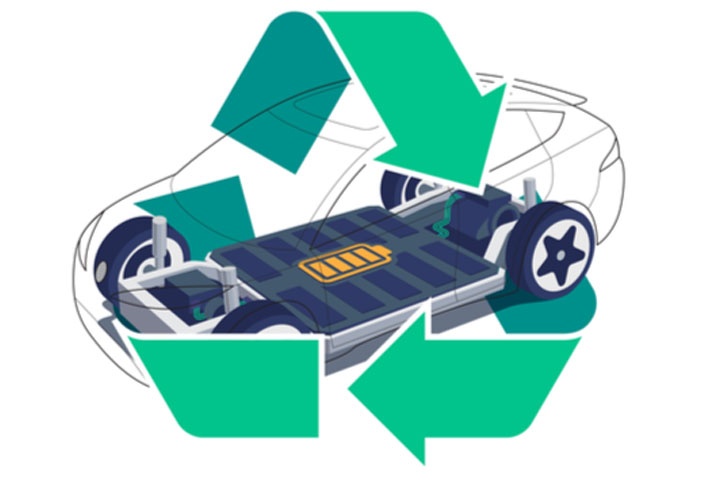



April 4, 2022



Climate columnist Tricia Clarkson looks into current ways to re-use, re-purpose and recycle used electric vehicle batteries
April 1, 2022
Original article published in The Peterborough Examiner
As more electric vehicles (EV) hit the roads, concerned climate change activists wonder what will happen to the batteries once their lifespan has expired and they are disposed of.
Will they be harmful to the environment? Not necessarily. There are new green technologies that have developed ways to re-use, re-purpose and recycle used EV batteries.
Canada now has a unique opportunity to divert some of the world’s most sought-after clean-energy minerals from potentially hazardous waste. By finding ways to re-purpose used electric vehicle batteries, Canada could alleviate the need to ramp up mining operations currently needed to meet growing demand for rare metals.
EVs have lithium-ion batteries similar to smart phone batteries but much larger. An EV car battery can weigh several hundred kilograms and is made up of materials like manganese, graphite, nickel, cobalt and lithium with an average lifespan of 15 to 20 years. That’s when new green technology that is already underway can recycle EV batteries after they have been discharged, stabilized, and dismantled to the module level so that cell components can be separated into different materials streams.
Kunal Phalpher, chief strategy officer at Li-Cycle, a Toronto-based lithium-ion recycling company with four facilities operating and under construction across North America– including in Kingston, Ont–said the more batteries become available, the better the opportunities become for recyclers, so it’s crucial to plan for recycling right at the start of the electric vehicle growth curve.
“In the next eight to 10 years we’re going through this first wave of rapid growth and rapid increase in demand for these materials where you’re still going to need new primary resources [from mines]. But it’s also the time to build up infrastructure to manage [batteries] at end of life so that we can continue to chip away and increase the percentage of recycled material back into the battery,” he told The Narwhal.
Phalpher said he anticipates a sector-wide shift to reusing more materials. Electric vehicle batteries aren’t currently produced with recycled minerals because there’s not enough supply.
But as we get into the next decade, we’ll start to see a sharper increase in that and then you can eventually work towards not having to build new resources for pulling material out of the ground and really drive production through secondary sources,” he said.
Statistics Canada says 65,253 new battery-only and plug-in hybrid electric cars were registered in 2021. This gives Canada an opportunity to rethink battery recycling. Ontario is overlooking the potential economic benefits of extracting materials from used-up electric vehicle batteries–materials that don’t require the creation of new, environmentally harmful mines.
“Hundreds of millions of dollars are flowing into recycling startups and research centres to figure out how to disassemble dead batteries and extract valuable metals at scale. There is a lot of battery capacity left at the end of first use in electric vehicles,” said Jessika Richter, Environmental Policy Researcher at Lund University. These batteries may no longer be able to run vehicles but they could have second lives storing excess power generated by solar and wind farms.
Recycling, Re-using and Re-purposing depleted EV batteries could be one of the Green Jobs Prime Minister Trudeau speaks of in his Just Transition to a Green Economy. Now we just need the recycling facilities and Green Jobs Training Centres to teach people how to do it.
